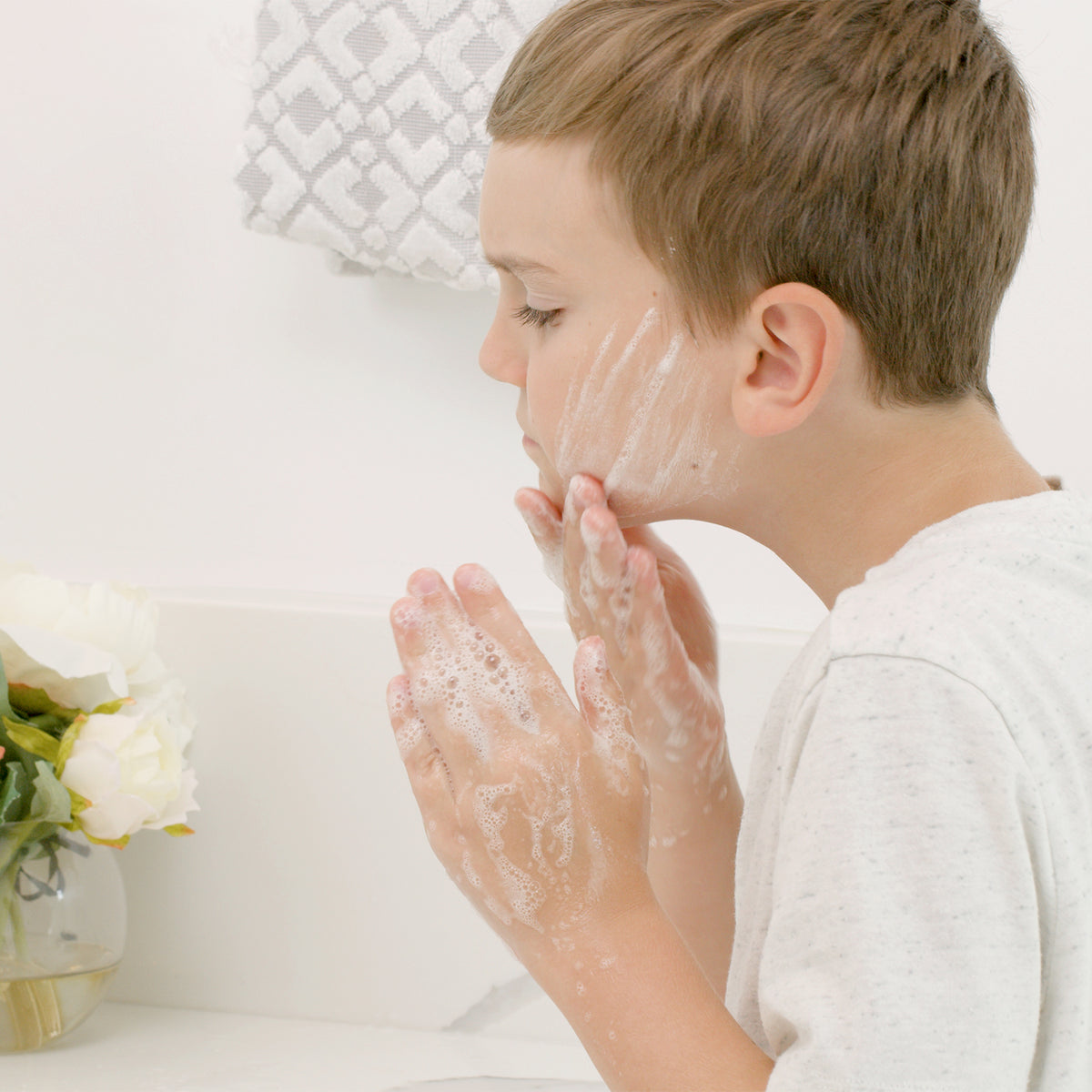Taking Good Care of Eczema Prone Skin

What Is Eczema?
Eczema is also known as atopic dermatitis. It's a chronic skin condition that causes inflammation, itching, and redness. It can affect people of all ages, but it often starts in childhood and may continue to adulthood. Eczema can be an inherited condition, but it is often triggered by something in the environment. People with eczema have a weakened skin barrier, which makes it easier for irritants and allergens to penetrate the skin and cause flare-ups.
The symptoms of eczema can vary from person to person and may be mild or severe. If you have eczema, you may have dry, scaly patches of skin, small bumps that ooze or crust over when scratched, and thickened or leathery skin. Eczema can also cause intense itching, which affect your quality of life by causing stress and disrupting your sleep and calm.
What Causes Eczema Flare-Ups?
Different people have different eczema triggers. Here are a few of the most common ones:
Irritants
Harsh chemicals, especially the ones found in soaps, detergents used on clothing, and cleaners are all at the top of the list. It makes sense when you think about it: anything that touches your skin can penetrate it, especially if your skin barrier is thinner. It's much better to use natural soaps and laundry cleansers rather than constantly exposing your skin to something that can cause an eczema flare.

Allergens
Sneezing and sniffling are just the beginning. Our skin is also susceptible to the same histamine triggers as our respiratory system. Dust mites, dander, pollen, and mold can all be a factor, and if you use harsh chemicals or detergent to remove them, you can give your skin double the trouble. Food allergies can also trigger eczema flare-ups.

Temperature and humidity changes
Allergy season means weather changes, too. If your skin seems to get angry every time the temperature or the humidity changes suddenly, this might be a reason why. Cold, dry weather can also trigger eczema, and indoor heating furthers the problem by drying out the air.
Hormones, Stress & Infections
Have you noticed your breakouts occur on a regular schedule? Hormone changes might be one of your eczema triggers. Skin breakouts can add another layer of frustration to your life at the worst times, and that can cause stress, which further affects our hormones, especially the stress hormone cortisol.
Bacteria and viruses can also trigger flare-ups, especially skin infections. Keep your skin clean and clear with a gentle soap.

Taking Care of Eczema-Prone Skin
If you struggle with eczema, take good care of your skin to manage your symptoms and prevent flares. Here are a few things you can do to keep your skin healthy and happy:

- Discover and avoid your triggers. Keep a clean home and environment to remove allergens and discover your hidden triggers. Ditch anything that might be causing your breakouts, especially harsh chemicals you use regularly. This includes the soap you use for your body and face, as well as the cleaners you use around the house and wash your clothes in.
- Moisturize generously. Adding moisture to your delicate skin barrier can help. Fragrance-free lotions and moisturizers are best, especially if you're not sure what scents might trigger a flare-up. Southern Natural's Goat's Milk Lotion will be here soon, and it will be a big help for those of you who already respond well to our soaps.
- Wash with cool or warm water. Hot water dries out the skin and causes flare-ups. Be gentle to your skin.
- Dress comfortably. Wear soft, breathable clothing made of natural fibers. Avoid scratchy synthetic fabrics that irritate your skin.
- Stop scratching! You might get tired of hearing it, but it's worth repeating. The momentary relief isn't worth the long-term breakout.
- Protect your skin. This may mean wearing a hat, gloves, or sunscreen, depending on the weather. Sunburns and windburns can make eczema worse and cause long-term skin damage.
- Manage stress. Take advantage of another reason to take care of yourself! Taking the time to meditate and take care of yourself helps you to manage your stress load and prevent eczema breakouts. Get enough rest, eat good food, and exercise regularly, too. And don't forget to spend quality time with your family and friends. All these things will make you healthier and happier, and your skin will see the results, too.
- Choose the right soap. Our secret weapon for fighting eczema is our all natural goat's milk soap. Our goat's milk soaps are a great choice because they won't strip your skin of its natural oils, but gently remove dirt and impurities. It adds moisture and adds nutrients and protein to the skin.
Shop Goat's Milk Soap
